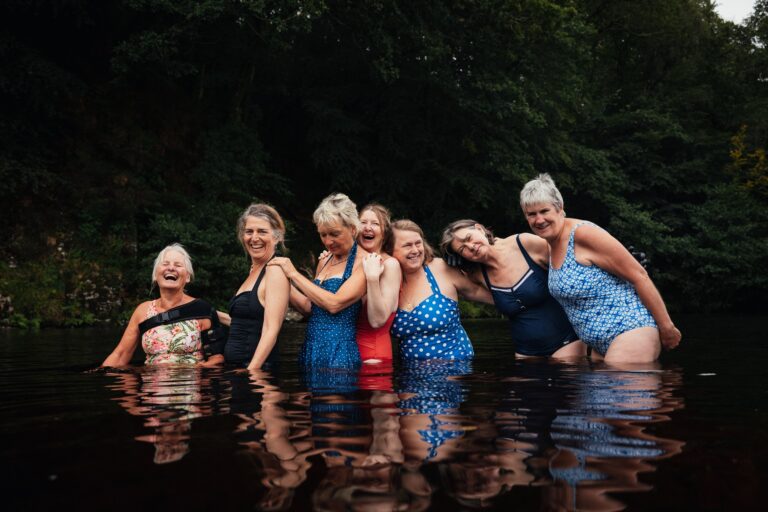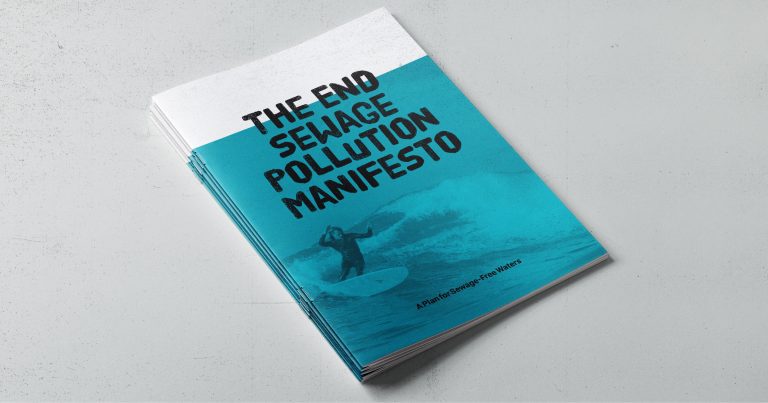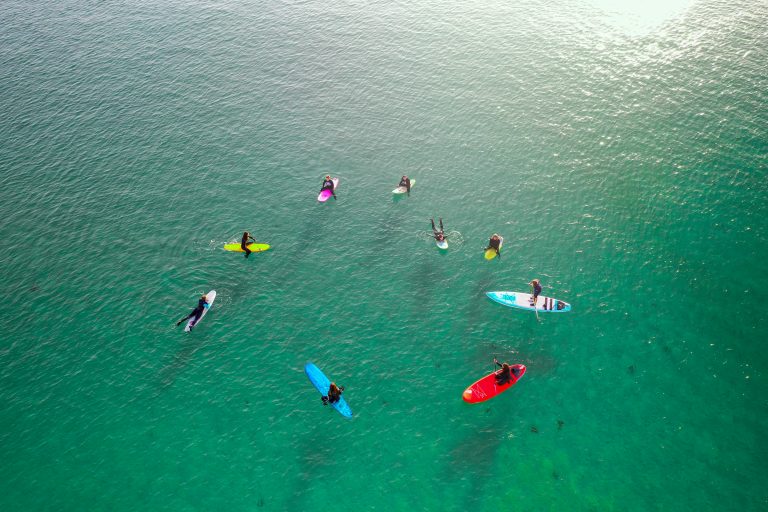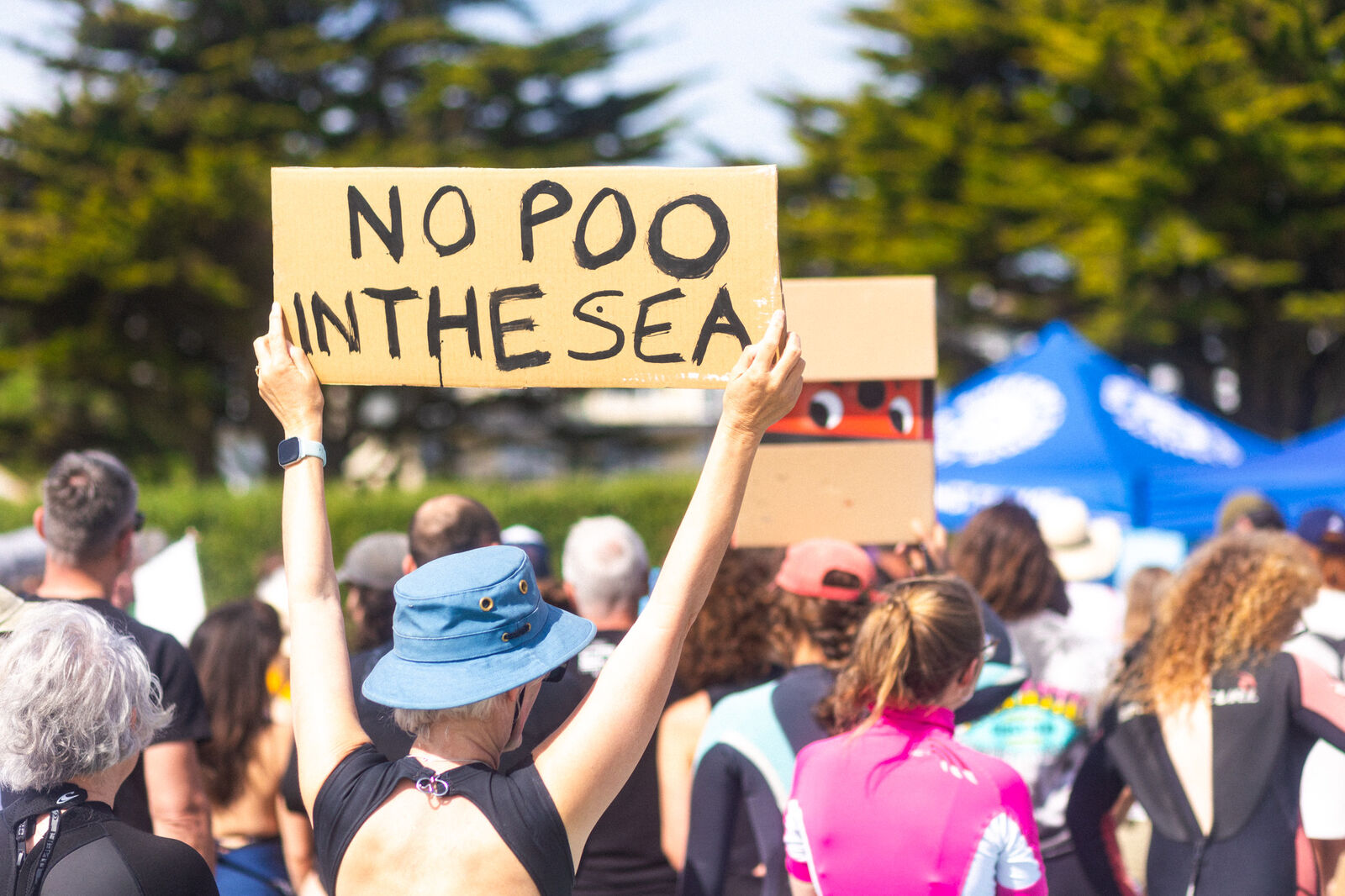
Tell us how you use the water
Where do you swim, surf, paddle or play?
We're collecting data on the UK's recreational waters, to show why we need better legislation to protect water users.
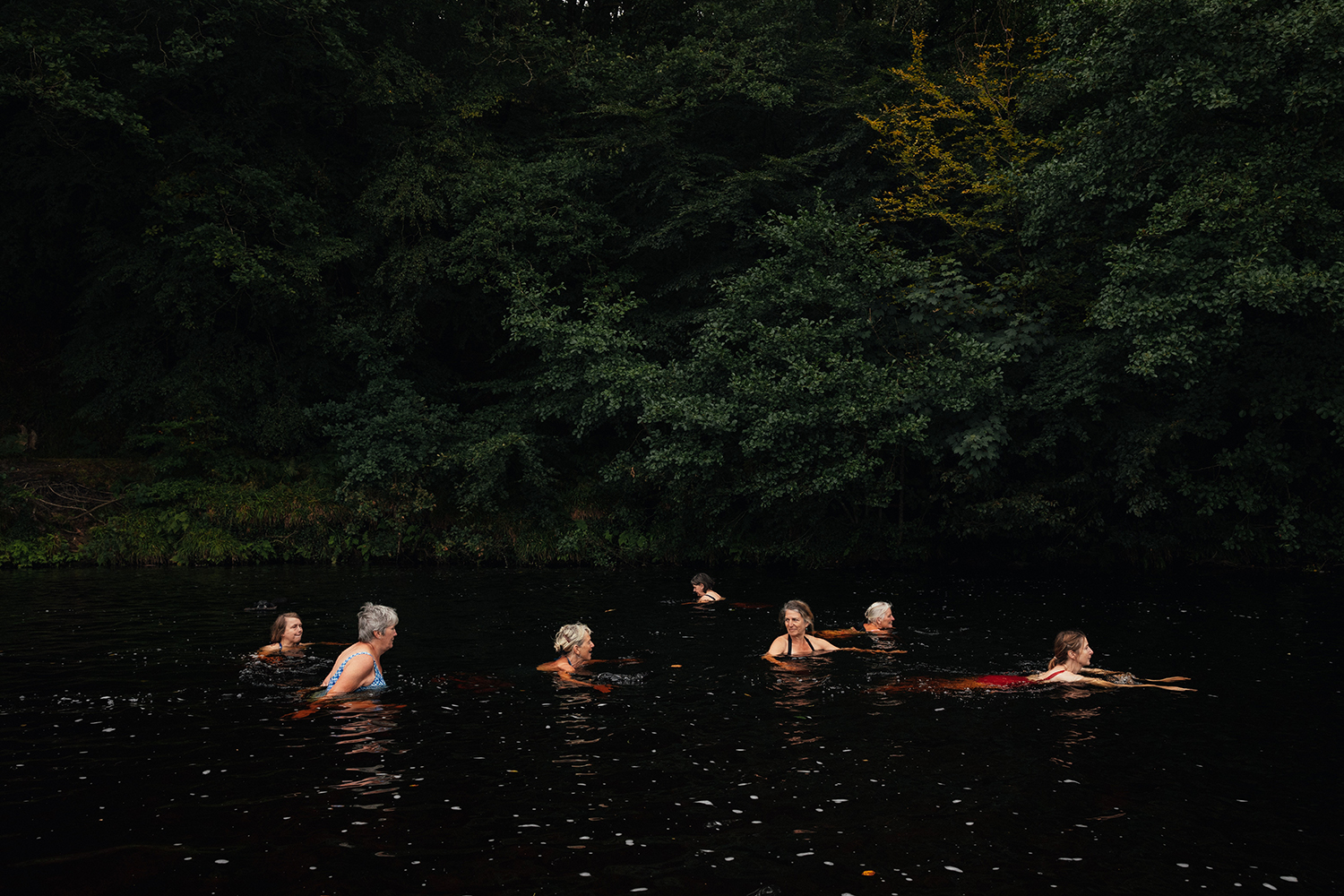
Bathing waters are vital to protect water users from poor water quality. But currently, the legislation that’s triggered once a bathing site is designated doesn’t fully represent who uses these waterways – or where, or how. Will you help us call for change?

Where do you swim, surf, paddle or play?
We're collecting data on the UK's recreational waters, to show why we need better legislation to protect water users.
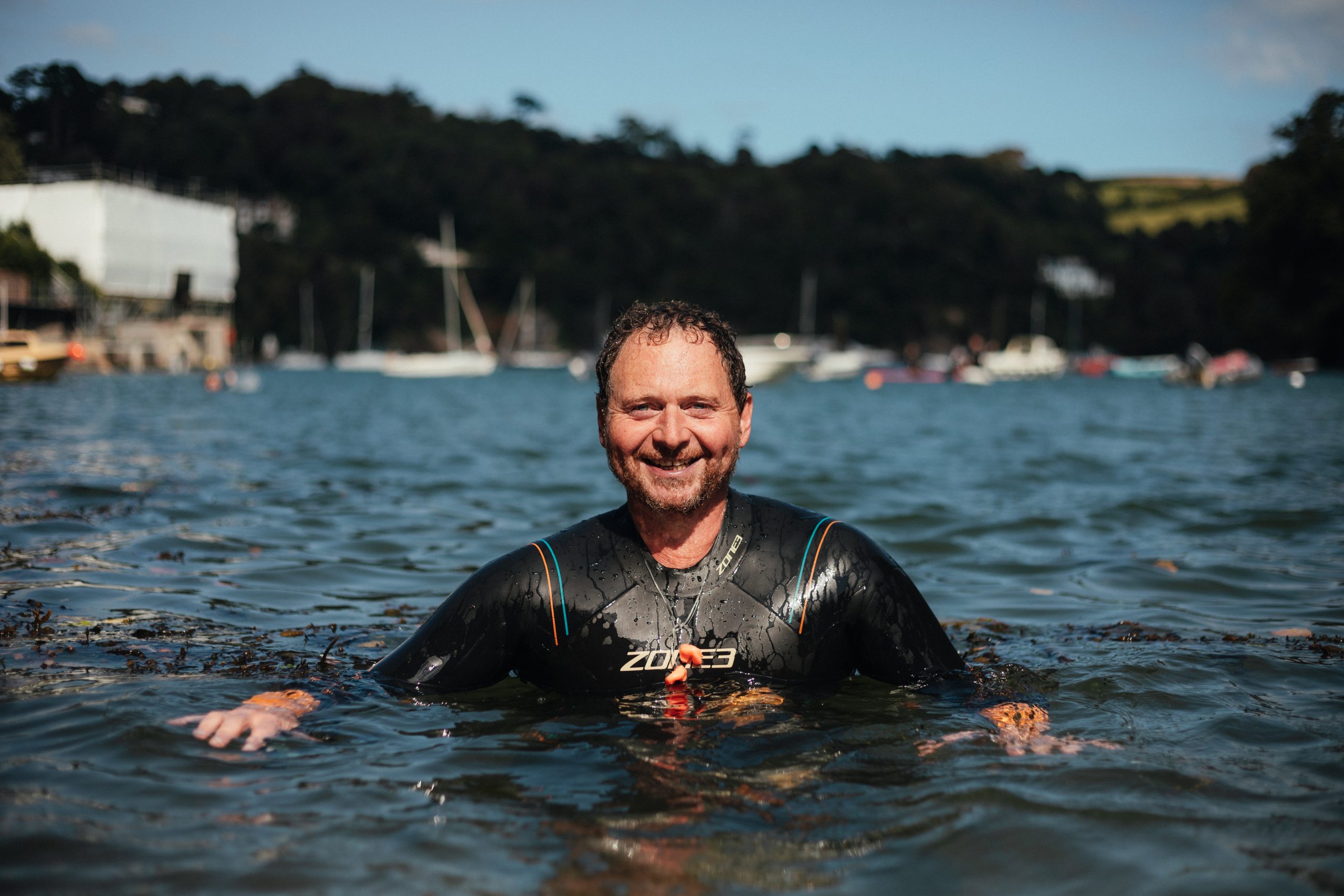
Protect your favourite spot by getting it designated as an official bathing water – and therefore regularly monitored and protected by legislation.
What’s the issue?
Popular swim spots can be designated as a ‘bathing waters’. Once designated, these locations fall under legislation which creates a responsibility for regulators to monitor the water quality. It also puts an legal onus on polluters to end any pollution.
Over the last 30 years, hundreds of coastal sites – including many of our favourite beaches – have been designated. This has led to huge improvements to the water quality in the places where we swim, surf and paddle. That’s why we support communities who want bathing water designation where they live, whether that’s on the coast or inland, to protect their local spot. It’s a vital mechanism that can drive real, lasting change by forcing regulators and polluters to investigate and invest in ending pollution.
But having supported 19 communities to apply for bathing water designation over the past three years, we’ve learnt that the way swim spots are designated is in desperate need of an update.
Over 30 years have passed since the legislation was introduced, and the way we jump into the blue has changed. We have a greater understanding of the risks we face. And we need better protections for the wild waters we love.
What are our demands?
We see five key areas of the Bathing Water Regulations that need to be reformed
1) Extend bathing water season to cover the full year.
As surfers, swimmers, paddleboards and paddlers, we know the water isn’t just for summer. Cold water dipping is increasingly popular, and more people are braving the water in winter than ever before.
But whether you dip in December or June, you deserve to know the risks you face all year round – not just in the summer months.
We need the bathing season to be extended to the full year. This will force regulators to test the water quality of our well-loved spots year-round, and consider this when assessing its quality.
2) Overhaul testing regime to include other pollutants and real-time monitoring.
Did you know that anyone using the water is exposed to a huge range of contaminants – including heavy metals, microplastics, chemicals and anti-microbial resistant bacteria?
Currently, not all of these are monitored at bathing water sites. So water users simply do not know the all risks they face when entering the water.
We’re also dependent on weekly testing through the summer season to give us some understanding of the risks we face when jumping in. But the water quality can vary hugely on an hourly basis.
That’s why we’re calling for real-time monitoring of popular spots, for a much broader range of pollutants.
3) Include all water users when designating a bathing site.
Currently, the bathing water designation process only considers “bathers” (swimmers) as the people using the water.
But we’re a watersport-loving nation. Surfing, kayaking and paddleboarding has boomed recently; not to mention anglers, sailors, and other water lovers.
Bathing water regulations need to reflect, and protect, all recreational water users. We’re demanding change.
4) Overhaul approach to de-designation.
If a designated site is deemed to have ‘Poor’ water quality for five consecutive years, it loses its designated status and is no longer monitored.
But it takes time to assess the water quality of a site, identify the sources of pollution and take action to clean it up. Five years simply isn’t enough time for actual improvement.
And these are popular spots that swimmers and other waters will continue to use. If they’re badly polluted, they need more investment and protection – not less.
5) End disregarding samples and Short-Term Pollution (STP) provisions.
The current water quality testing regime within the Bathing Water legislation is wilfully discounting the worst pollution events in the country. And it’s misleading the public about the safety of the waters.
In the UK, the testing regime allows up to 15% of testing results per bathing site to be disregarded. Not only that, but short-term pollution (STP) events can also be disregarded in the current legislation. These STPs are often high levels of sewage pollution or agricultural runoff.
Every result, from every water quality test, provides insight into the water health of a swim spot. So every result should be included when assessing the overall quality of a bathing water.
We want to see an end to the regulator disregarding samples. Instead, regulators should use all the data available to provide the most transparent assessment of bathing water quality.
Demand change to protect our wild waters
More and more communities are applying for bathing water designation. And having supported a large number of these groups, we know this regulation reform is vital to fully protect our favourite blue spaces.
This would allow for inland and coastal bathing waters to be protected in a way that actually reflects how we use the water. It would make it easier for communities to apply for protections for the blue spaces they love. And it would encourage an increase in the number of wild waters protected.
To do this, we’re calling on the Government to consider the bathing water designation process and criteria when they next review the regulations for bathing waters. And they’re currently consulting: Consultation on Reform of the Bathing Water Regulations 2013 – Defra – Citizen Space
The Ripple Effect – SAS launch a citizen science report which shines a light on outdated bathing water legislation. Data and campaign actions from citizen scientists and community campaigners provide valuable evidence and data on why we need the government to act now.
The Ripple Effect outlines three key demands for reforming bathing water regulations:
Demand 1: Year-round testing
Demand 2: More than swimmers
Demand 3: Testing for emerging pollutants
The government are reviewing the Bathing Water legislation in England and Wales for the first time in over a decade. Thanks to your demands, we now have the opportunity to speak up for the wild waters we love.
This is a vital step towards reforming an outdated, ineffective piece of legislation – and set the course for all waterways that are used recreationally to be designated. But we don’t want tinkering around the edges. We need radical changes.
Defra are consulting on five main reforms. Four are largely welcomed. One is not. They consulting on:
???? Expanding the definition of ‘bathers’ to include all water users
???? Removing fixed bathing season dates
???? Introducing multiple monitoring points to better classify water quality
???? Removing automatic de-designation for sites that get ‘Poor’ for five years
⚠️ Deciding if it’s feasible to improve a site’s water quality to at least ‘sufficient’, and using that as a criterion for final designation.
Respond to the consultation here by 23rd December. We’ve provided full guidance in a number of ways:
Water users across England have applied for their local blue space to be designated as a protected swim spot with the support of SAS. 27 new bathing sites were designated in 2024 of which 13 of these applications were supported by SAS. This means these well-loved spots are now monitored for bacteria harmful to human health with this water quality information available to water users.
51,689 call for the designation of 200 inland bathing waters. During the summer of 2022 we collected petition signatures to demand action for our inland blue spaces. Swimmers, paddle boarders and kayakers helped us deliver the petition to the government’s Department for the Environment. We also called on the government to recognise that it’s not just bathers that should be considered when designating bathing waters – but all water users.
SAS have been continuing our calls to extend the bathing season to better represent the times of the year that water users use the seas, lakes and rivers.
We are currently calling on the government to head our demands and take action to protect our favourite blue spaces. And you can too….
Contact wildwaters@sas.org.uk to be kept updated.
